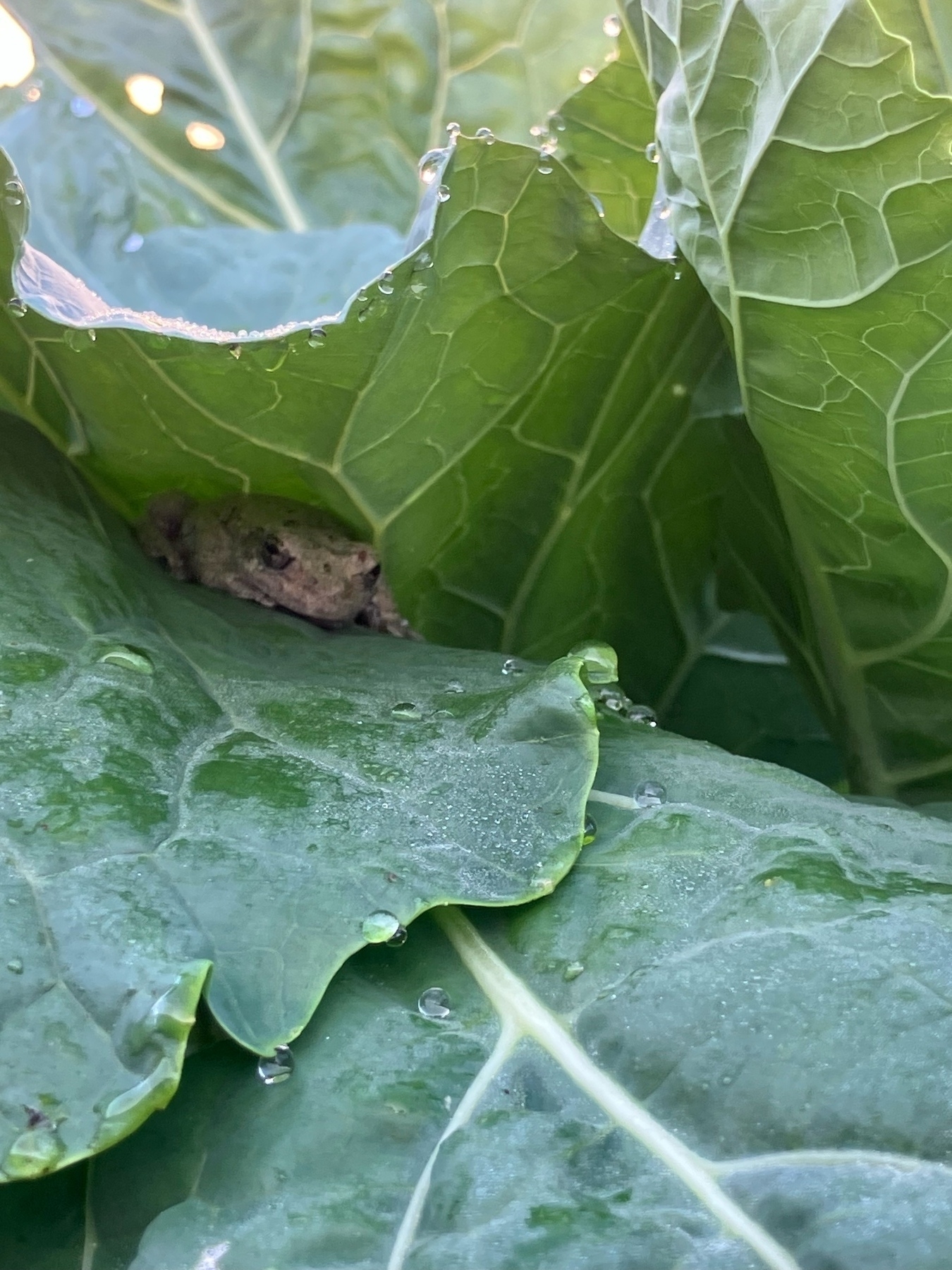Rachel found a little friend in the collard greens today.

Rachel found a little friend in the collard greens today.

Song of the day: “Que Sera Sera” 🎵
Happy solstice!

The real heroes of our time will not be any culture warriors, either left or right–and certainly not any keyboard warriors. The real heroes will be those who can keep their hearts free of hate, anger, and fanaticism.
This is a good video exploring the geography of Indiana and why it is the smallest of the Great Lakes states. Repeated mispronunciations of place names and even shudder “Hoosier” make me wonder if it’s a AI generated essay instead of one based on individual study. Seriously, mispronouncing Hoosier?
Jesse Welles is a folk legend in the making: “The Great Caucasian God” 🎵
One of the best things in my life is Rachel’s bread. It’s been ages since we last bought bread from a store. This is honey oat whole wheat.

I’ve been in the ER with mom since 7am today. Likely a bad episode of vertigo but they’re doing tests to make sure it’s nothing more. At one point, apropos of nothing, a voice I hadn’t heard before suddenly said “the kingdom of heaven is like unto a treasure hidden in a field.” It became quickly obvious that it was a woman reading to her husband. But the unexpectedness and the setting made it feel like a moment of grace in a tiring day.
Kenneth S. Cohen, The Way of Qigong:
The Chinese are fond of repeating, “To relax, you must be tranquil.” And we need to regard relaxation as a process of surrendering to a deeper wisdom, rather than acquiring, through effort, a new ability. Developing large muscles requires effort; cultivating relaxation requires letting go.
“It is important to have a secret, a premonition of things unknown.”